Wow! Did you know that 96% of senior HR professionals believe AI has the potential to greatly enhance talent acquisition and retention? That’s right, the future of recruitment is here, and it’s powered by artificial intelligence. In this guide, we’ll walk you through the exciting world of AI in recruitment process, showing you how to harness this game-changing technology to find the best talent for your organization. Get ready to transform your hiring practices and stay ahead of the curve!
Understanding AI in Recruitment: The Basics
Let’s start by demystifying AI in recruitment. You might be wondering, “What exactly is AI, and how does it fit into the hiring process?” Well, think of AI as your smart assistant that can handle repetitive tasks, analyze large amounts of data, and even make predictions based on patterns it identifies.
In recruitment, AI can be a game-changer. It can sift through thousands of resumes in seconds, identify top candidates, and even predict which applicants are most likely to succeed in a role. Pretty cool, right?
But don’t worry, AI isn’t here to replace human recruiters. Instead, it’s designed to enhance their capabilities and free up time for more strategic tasks. Some common misconceptions about AI in recruitment include fears about job displacement or concerns about bias. However, when implemented correctly, AI can actually help reduce bias and improve the overall quality of hires.
There are various types of AI technologies used in talent acquisition, such as machine learning algorithms for resume screening, natural language processing for chatbots, and predictive analytics for candidate sourcing. Each of these tools brings something unique to the table, helping to streamline different aspects of the recruitment process.
Assessing Your Current Recruitment Process
Before diving headfirst into AI implementation, it’s crucial to take a step back and evaluate your current recruitment process. Ask yourself, “Where are the bottlenecks? What tasks are eating up most of our time?” By identifying these pain points, you can pinpoint areas where AI can have the most significant impact.
For example, if your team is spending hours manually screening resumes, an AI-powered resume parser could be a game-changer. Or if candidate engagement is lagging, AI chatbots might be the solution you need.
It’s also important to gauge your team’s readiness for AI implementation. Are they open to new technologies? Do they have the necessary skills to work alongside AI tools? These are important questions to consider.
Finally, set clear goals and KPIs for your AI-enhanced recruitment process. What do you want to achieve? Faster time-to-hire? Improved quality of candidates? Better diversity in your talent pool? Having these benchmarks in place will help you measure the success of your AI implementation down the line.
Choosing the Right AI Recruitment Tools
Now that you’ve identified where AI can help, it’s time to choose the right tools for the job. There are numerous AI-powered recruitment platforms out there, each with its own unique features and strengths.
When evaluating these tools, look for key features like resume parsing capabilities, candidate matching algorithms, and integration with your existing HR systems. It’s also worth considering factors like ease of use, scalability, and customer support.
Remember, the best AI tool for your organization will depend on your specific needs and goals. Take the time to compare different options, request demos, and even run pilot programs if possible. And don’t forget to consider how these new AI tools will integrate with your existing HR tech stack!
Implementing AI in Resume Screening and Candidate Sourcing
One of the most popular applications of AI in recruitment is in resume screening and candidate sourcing. Setting up AI-powered resume parsing can dramatically speed up your initial screening process, allowing you to quickly identify candidates who meet your basic criteria.
But AI can do more than just screen resumes. It can also help you expand and refine your talent pool. AI algorithms can analyze successful past hires and use that data to identify similar candidates in your applicant database or even on professional networking sites.
When implementing AI for these tasks, it’s crucial to ensure fairness and reduce bias. Make sure your AI tools are trained on diverse datasets and regularly audit their outputs to check for any unintended biases.
Enhancing Candidate Engagement with AI
AI can be a powerful tool for improving candidate engagement throughout the hiring process. One popular application is the use of AI chatbots for initial candidate interactions. These chatbots can answer common questions, provide updates on application status, and even schedule interviews.
But the possibilities don’t stop there. AI can also help personalize communication with candidates, tailoring messages based on their interests and experience. And when it comes to scheduling and coordinating interviews, AI can take care of the back-and-forth, finding times that work for both candidates and interviewers.
The best part? AI can provide valuable insights into candidate experience, allowing you to continuously measure and improve your engagement strategies.
Streamlining Interviews and Assessments with AI
AI is also making waves in the interview and assessment stage of recruitment. AI-powered video interviews, for instance, can analyze candidate responses and even subtle aspects of body language to provide insights that human interviewers might miss.
When it comes to skills assessments, AI can help create and evaluate tests that accurately measure a candidate’s abilities. This can be particularly useful for technical roles where specific skills are crucial.
However, it’s important to approach AI-assisted interviews and assessments with care. Ensure that you’re complying with all relevant regulations and ethical guidelines. And remember, while AI can provide valuable insights, the final hiring decisions should always involve human judgment.
Training Your Team to Work Alongside AI
Implementing AI in your recruitment process isn’t just about the technology – it’s also about your people. It’s crucial to develop AI literacy among your recruitment team. This doesn’t mean everyone needs to become a data scientist, but they should understand the basics of how AI works and its role in the recruitment process.
You may need to redefine roles and responsibilities as you integrate AI into your workflow. For example, recruiters might spend less time on initial screening and more time on strategic candidate engagement.
It’s also important to establish best practices for human-AI collaboration. How will your team use AI insights? When should they rely on AI recommendations, and when should they trust their own judgment?
Lastly, be prepared to address concerns and resistance to AI implementation. Open communication and ongoing training can go a long way in helping your team embrace these new technologies.
Measuring the Impact of AI on Your Recruitment Process
Once you’ve implemented AI in your recruitment process, it’s crucial to measure its impact. Key metrics to track might include time-to-hire, quality of hire, cost per hire, and candidate satisfaction scores.
There are various tools available for analyzing AI performance and ROI. Many AI recruitment platforms come with built-in analytics features, but you may also want to consider standalone analytics tools for more in-depth analysis.
Remember, implementing AI is not a one-and-done process. It requires continuous improvement and fine-tuning. Regularly review your AI performance, gather feedback from your team and candidates, and make adjustments as needed.
Finally, don’t forget to celebrate your successes! There are many inspiring case studies of organizations that have successfully implemented AI in their recruitment processes, achieving significant improvements in efficiency, quality of hire, and candidate experience. With the right approach, your organization could be the next success story in AI-driven recruitment.
Conclusion
There you have it – your roadmap to implementing AI in your recruitment process! By following this guide, you’ll be well on your way to revolutionizing your talent acquisition strategies. Remember, the key to success is striking the right balance between human expertise and AI capabilities. So, are you ready to take your recruitment game to the next level? Don’t wait – the future of hiring is here, and it’s time to embrace the power of AI in recruitment process. Your perfect candidates are out there, and with AI by your side, you’re now better equipped than ever to find them!

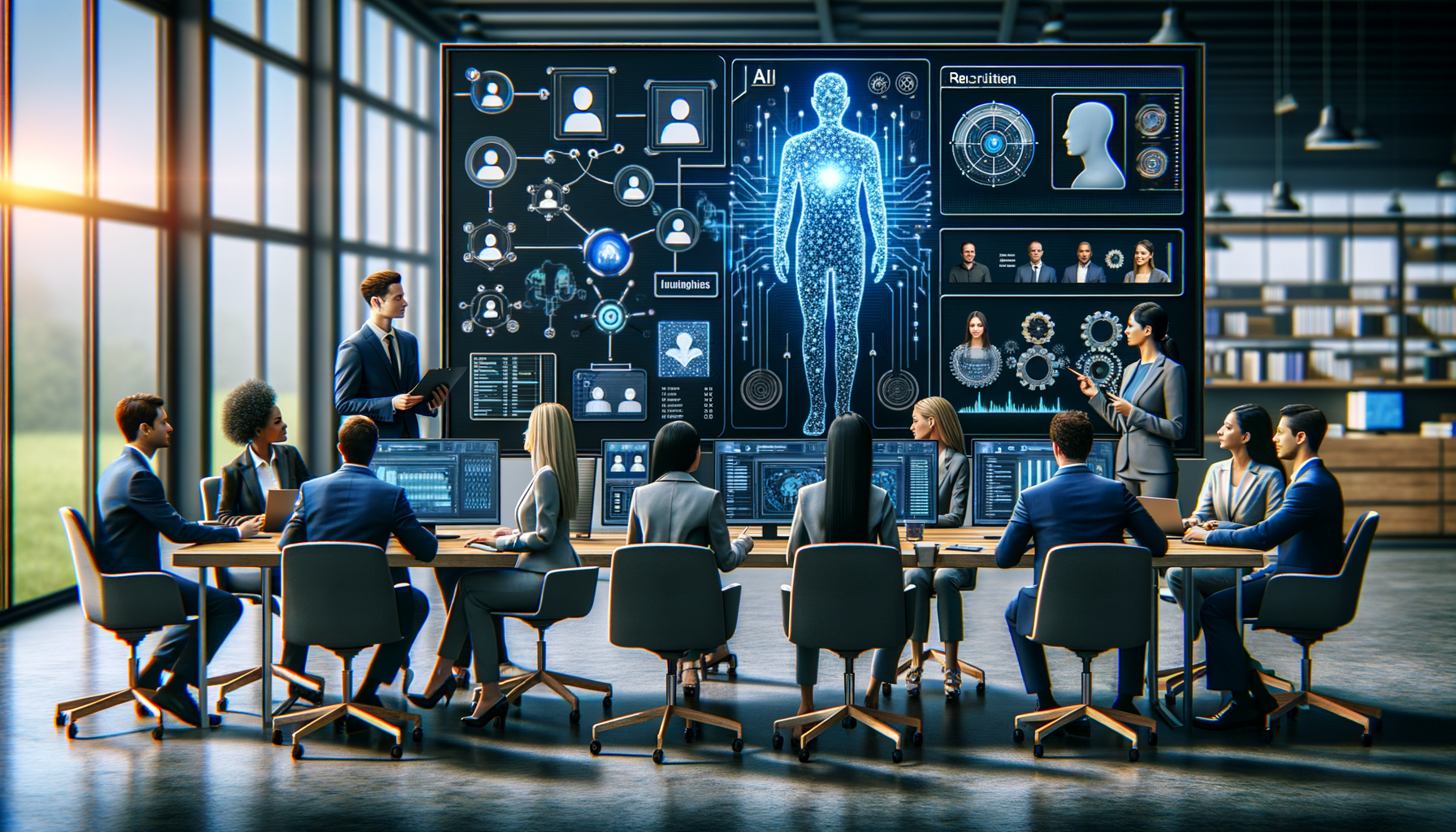
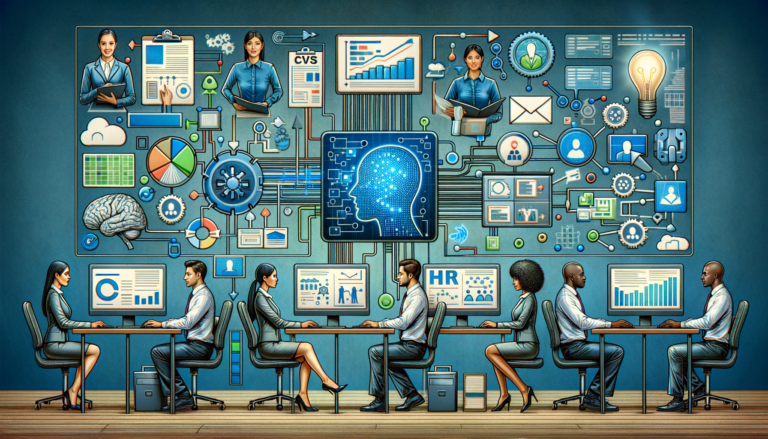

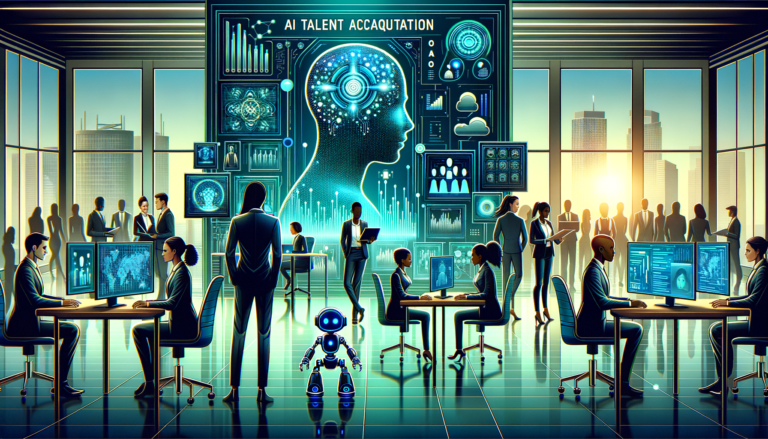
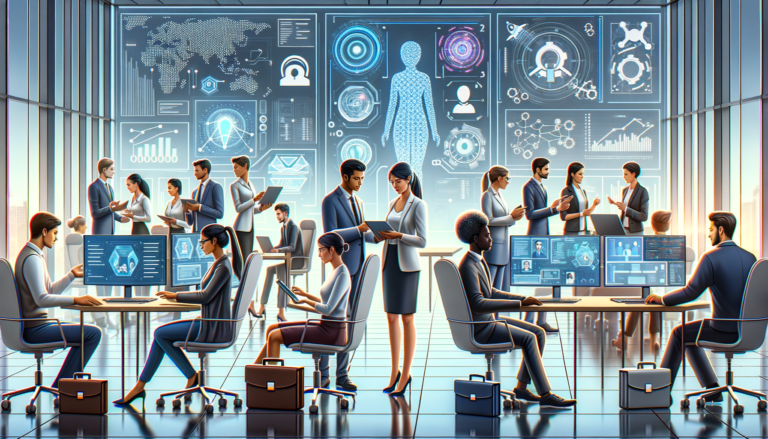
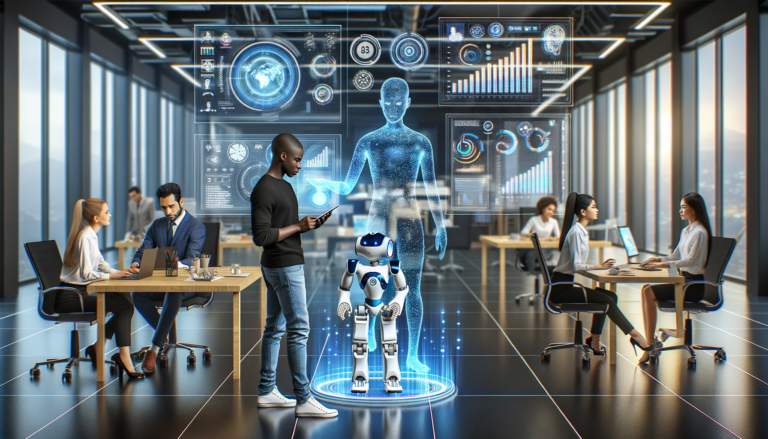

2 Comments